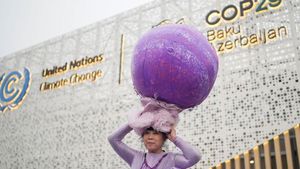Following the recent U.S. elections, stock market volatility has surged, leaving many investors on edge. Markets, which initially soared after the announcement of Donald Trump’s decisive victory, are experiencing significant fluctuations, reflecting the many uncertainties prevalent during this transitional period. The aftermath of the election raised questions about how Trump's potential policies—particularly around taxation and trade—would impact various sectors of the economy.
The S&P 500, Nasdaq, and Dow Jones Industrial Average all closed the previous week on negative notes, with the S&P 500 dropping by 2.1% and the Nasdaq suffering losses of 3.2%. Such declines bring the indexes down from the euphoric heights witnessed shortly after the election when U.S. markets marked some of their highest gains, led by sectors like banking and energy. This dramatic shift highlights the delicate nature of market confidence and the rapid changes influenced by political events.
Analysts suggest the recent declines stem from several key factors, which include rising Treasury yields and uncertainties surrounding Trump's cabinet selections, particularly his anticipated nominations for key health and defense positions. Concerns about inflation and interest rates creeping up again have started to weigh heavily on investors' minds. Inflation, which many had hoped would stabilize under the new administration, continues to inspire caution as tax cuts and tariffs become prominent discussion points.
The potential pick of Robert F. Kennedy Jr. for leading the U.S. Department of Health and Human Services hasn't done the pharmaceutical sector any favors. Kennedy, known for his controversial stance on vaccines, has sent pharmaceutical shares reeling, prompting fears about future regulatory and policy changes. Stocks like Moderna and AbbVie saw significant declines, reflecting apprehension among investors about the future of health policy.
On the other hand, there is still optimism present among certain investor circles. While the market exhibited challenges, experts believe underlying economic fundamentals remain strong, supported by corporates striving for growth and solid earnings reports across many sectors. Kristy Akullian, head of iShares investment strategy at BlackRock, echoed this sentiment by stating, "We expect the U.S. equity market to continue to move higher, but don't expect the rise to happen in a straight line." This suggests volatility might linger as the market digests the potential impacts of Trump's policies.
Meanwhile, tech stocks, which have often been seen as the bellwether for market sentiment, have also come under pressure as investors recalibrate their expectations for growth amid concerns of overvaluation. After substantial post-election gains, many tech companies are now grappling with reality, battling against higher financing costs and potential regulatory headwinds.
The volatility isn’t just confined to the stock market; it reverberates through foreign exchange markets as well. The U.S. dollar has seen some strength, partially driven by rising Treasury yields and expectations for interest rates to remain elevated longer than previously anticipated. The forecasts for the dollar remain mixed, with some analysts expecting it to strengthen if Trump follows through on his proposed policies, including infrastructure spending and tax cuts.
On the crypto front, Bitcoin has become noticeably influenced by the Trump-fueled market dynamic, witnessing notable increases even as U.S. stocks fell. This scenario raised eyebrows, leading to discussions about shifting investor sentiment and the potential influence of digital currencies as alternative assets amid market volatility.
Heading forward, investors are bracing for another wave of economic indicators, including inflation data and corporate earnings reports, particularly focusing on trends from the tech giant Nvidia, which is slated to announce its earnings soon. Nvidia's performance could set the tone for the tech sector and broader markets, as it is often viewed as reflective of technology’s health overall.
Market watchers suggest prudence, advising investors to be prepared for micro-volatility as policies evolve under the new administration. With discussions cooling around potential shifts affecting interest rates, many expect continued fluctuations. The eyes of both investors and traders are peeled as the economy responds to both Trump’s leadership and the global economic climate, shaping the next chapter for financial markets.
While the immediate outlook appears turbulent, the long-term view remains cautiously optimistic according to several analysts, who maintain confidence the U.S. economy has the resilience to weather these new challenges. The balance between caution and continued investment remains delicate, as market players adapt to the new political environment.



